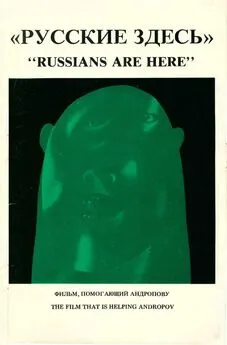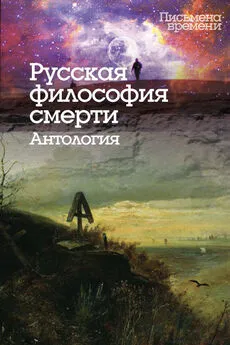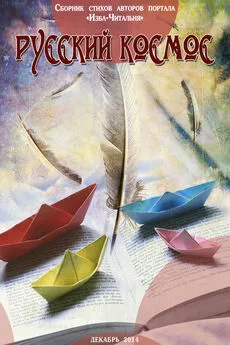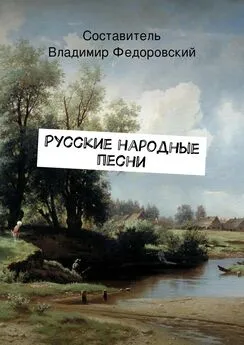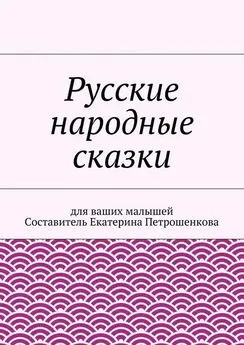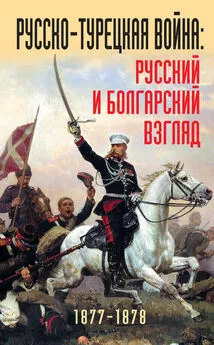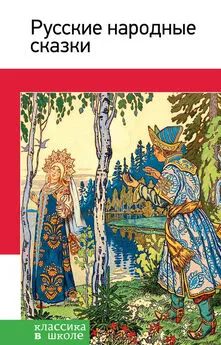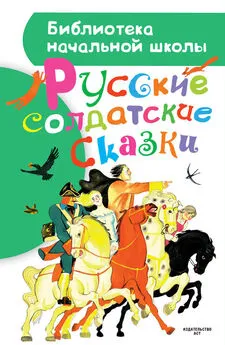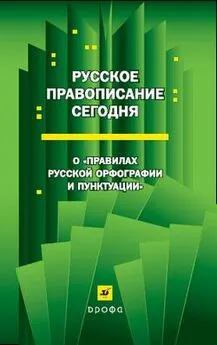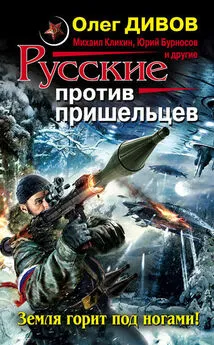Коллектив авторов - Русские здесь: Фильм, помогающий Андропову
- Название:Русские здесь: Фильм, помогающий Андропову
- Автор:
- Жанр:
- Издательство:Третья волна
- Год:1983
- Город:Париж—Нью-Йорк
- ISBN:нет данных
- Рейтинг:
- Избранное:Добавить в избранное
-
Отзывы:
-
Ваша оценка:
Коллектив авторов - Русские здесь: Фильм, помогающий Андропову краткое содержание
Мы призываем всех эмигрантов поддержать Антидиффамационную лигу, созданную по инициативе Владимира Буковского. Всю информацию об этой Лиге вы найдете на последней странице обложки.
Русские здесь: Фильм, помогающий Андропову - читать онлайн бесплатно полную версию (весь текст целиком)
Интервал:
Закладка:
9. Writers on welfare who miss the KGB.
10. Poets who guzzle vodka even when lying down in bed.
It is the last two types who are worth special attention, to show how Ofra Bikel turned specific individuals into the puppets of her propaganda puppet show.
Missing the KGB
The "star” whom Ofra Bikel 'dug up for this role is author Lev Khalif. He cannot publish his books in English. So? Thousands of Americans who consider themselves professional writers cannot publish or sell their books either. Why? The reasons are many and varied, but whatever they are, what is so "Russian” or "Russian-emigre” about this?
Given at least some sense of humor, Ofra Bikel could have introduced Lev Khalif in this way: “Mr. Khalif loves paradoxes, just as Bernard Shaw or Oscar Wilde did. Whether his paradoxes are as witty as Shaw’s or Wilde’s is for you to judge. For example, here is one: ‘In Russia the writer is destroyed by the KGB, in the West by indifference.’ ”
Instead — when Khalif said that in Russia at least the KGB avidly read his every word, and, "I sound as though I am nostalgic about the KGB” — Ofra Bikel’s translator rendered it in an even monotone: “I actually miss the KGB.”
Next, to personify the Russian-language poets in emigration, Ofra Bikel chose Konstantin Kuzmin-sky. The choice was her racist masterpiece. No one produced more hatred among TV viewers for the “Russians” than that “image” into which Ofra Bikel converted the highly gifted, selfless and kind Kuzminsky.
Curiously enough, about two years ago The New York Times carried a long, extensive article on Russian literature, in which the Russian emigre poet Joseph Brodsky was extolled at the expense of all other Russian writers. I attacked the article. I was especially incensed that not a word was said about the poet Konstantin Kuzminsky, who had helped Brodsky to publish his poetry abroad. On the crest of The New York Times article, Brodsky became one of the richest poets in America.
But now the tables are turned. Whereas The New York Times was interested only in Brodsky and ignored Kuzminsky, Ofra Bikel ignores Brodsky, because she ignores all successful, rich or influential emigres, and is interested only in Kuzminsky, because she can exploit Kuzminsky’s povery, lack of success and “punk” eccentricities.
In his sense and knowledge of Russian literature and his ability to write about it, Kuzminsky has few rivals in Russia or outside of it. But like every mortal, he also has his weaknesses. One of them is trying to show off how bohemian, and eccentric or “punk" he is. Ironically, he picked up this “punk” attitude from the American left, or at least nothing is more banal in the West than to grow a picturesque beard or guzzle vodka in front of a TV camera.
Of course, Ofra Bikel was not interested in the Russian genius of Kuzminsky —' she was interested in his "punk” that could be found 10 or 20 years ago among sophomores of every American college. She converted that “punk” into her propaganda message: The "Russians” are a bearded vodkaguzzling race of Boris Godunovs and Grigory Rasputins, so totally different from Jessica Savitch and Ofra Bikel.
With the help of poor Kuzminsky’s “punk,” Ofra Bikel managed to bring the TV viewers’ hatred for the “Russians” to the highest pitch. Ofra Bikel ought to -know that sexual associations originate in American minds quite readily under the influence of sex-charged mass culture. Therefore many viewers interpreted Kuzminsky’s “punk” sexually and mistook his home for a brothel run on welfare: “The Russians have come here to run brothels on welfare!”
At the close of the “documentary,” it is stated that the “Russians” would not have left Russia had they known they would not fit America and America would not fit them. They would go back to Russia if they could, but it is a "one-way ticket,” there is “no going back,” and so the “Russians” are trapped in an alien land and are destined to miss the KGB and all.
Throughout this film, not one “Russian” is shown to have a single spark of talent, intelligence or even humor. There is hardly any youth or beauty in those “Russians,” and not a single emigre expresses his gratitude for what he has achieved, or his hope to achieve more in the future.
All the “Russians” handpicked by Ofra Bikel grumble and grouse, demand they know not what, blabber arrant nonsense in atrocious English, miss the KGB, eat, drink and dance. Selected and transformed by the producer, they create the impression of pale ugly plants grown without light or warmth, poisonous mushrooms, or deep-water fishes thrown out of their native ocean — the Soviet regime — and burst by their own vanity and stupidity.
Just how carefully Ofra Bikel handpicked her “Russians” for her propaganda message is obvious from this fact: She spent hours upon hours filming the art scholar Ifeteryatnikov, the sculptor Neizvestny and yours truly — but all this film was thrown out — down to the last inch, for even one such inch could have relieved the gloom and doom of the “documentary.”
As a sermon in racist or class hatred, “The Russians Are Here” can indeed be ranked with “The Protocols of the Elders of Zion” or Pravda’s discourses on “class aliens" after Lenin’s coup. I have to admit that I cannot imagine a more effective piece of propaganda which the KGB could create to halt and reverse the growth of the emigration’s influence, its success and social significance. Tbday, the emigration has been terminated by the Soviet regime. Now the goal is to neutralize those who have emigrated. What could be more effective than this “documentary”?
At this writing, the PBS program has been shown in more than 400 cities of America. In New' York it has been aired at least twice, and it is said to be scheduled to be shown 10 times in all.
And, those in charge of Soviet propaganda can readily show' it in Russia as well. As several emigres noted, “Ihke away some of the food and the mink coats, and Moscow television will never concoct more effective propaganda to reassure its own population: ‘Here is America! And here you are in America. You see how it is? To think that some of you resent our Soviet regime! If you go to America, you’ll miss even the KGB, but it’ll be too late for regrets.’ ”
¥ Center for the Survival
of Western Democracies
Lev Navrozov
PBS-TV airs Big Lie on Russian immigrants
Dear Editor!
On Monday, June 13, my wife and I watched a Channel 13 TV program about 100,000 Russian-JewiSh immigrants, a group to which we belong. Since coming to this country, we have never been more insulted.
One after the otner, we saw several different kinds of people portrayed: two or three successful small businessmen bewildered by competition; a taxi driver, and a relatively young stock market speculator. He made a few bucks and could afford totheorize; “To me, the communism in the United States.is exactly as Karl Marx predicted. lb me, communism is the abundance of food and entertainment.”
Perhaps the worst scene showed a company of drunkards who lay on the floor with dishes of smoked lox on their bellies. They were drinking vodka by the cup, patting their dogs and pretending they were famous writers. Their conversation, sometimes under apparent intoxication, is carefully commented on by the “honest” voice of the newswoman:
“These people do not know what freedom is; they certainly miss the slavery which was good for them, and they miss their Russian friendships which were manifested through vodka, by vodka and for vodka. They are not accustomed to living the honest life.” The final scene of the show was of a Russian restaurant, filled with merry gypsy songs. They were eating, dancing and drinking vodka.
By such a portrayal, we were destroyed.
Where are the people we really came here with? The thousands and thousands of skilled workmen, engineers, doctors, businessmen and writers, people who care about the future? This is our country, too, and we arrived here not by birth/ but by challenging the most terrible terror machine.
Now the United States struggles with the most acute international problem of socio-economic relationships, and the two countries playing that game are the United States and the Soviet Union. And the Russian experience is negative. The class struggle initiated by Marx and Lenin has hit a dead end. On the other hand, adequate education, cooperation of people of good will and congeniality has brought quality control as well as success to the West.
We who were not shown on Channel 13 would like to witness to the fact that the ideas of class struggle should be dumped for good. Will the whole nation of America benefit from such an act?
PBS’s “The Russians Are Here”: deliberate slander
Dear Editor:
After emigrating from the U.S.S.R. to this country five years ago and settling in New York, I have had more than one occasion to witness the high intellectual quality and profundity of New York’s Channel 13 programs. Yet the show “The Russians Are Here” on June 12 and 19 has left me perplexed and indignant.
The program has distorted the life image of an entire group. Tb begin with, we are not “Russians”: Soviet emigrants of the last decade are mainly ethnic Jews, and a more befitting Title would be “The Soviets Are Here.”
But the flaw of the show is not its title but the odd choice of the interviewees.
Not exactly. Certain people have built their careers on the development of class struggle. They were simply brought up on these ideas and find it hard to reject. Naturally, these kinds will try to do away with any witnesses who speak to the contrary.
This is why I don’t think the creators of the TV program were payed by the Soviet government, for example. But if I were in the shoes of that government, I would definitely reward them — for instance by giving them a chance to live for a couple of years in the same situation we were in before we came to America. They should live, not on the American dollars they made here, but on the rubles they earn there. And they should live, not by telling lies, but by honest labor—as honest as the face of that actress who moderated the show.
V. Livoff
New York
New York Tribune June 20, 1983
As a documentary writer (I have published 14 books about scientists in the U.S.S.R. and six in the West), I have been interviewing people for the past 36 years as the principal way 1of collecting material for my books and articles. Within the past two years, I have interviewed about 250 recent immigrants from the U.S.S.R. for my new book on Soviet mores. My interlocdtors included men and women from 22 to 76 years of age, representatives of 18 professions — from writers and scholars to sailors and hairdressers.
Some were better, some worse off, some had attained peace of mind, some were still shaken emotionally, but of the 250 individuals I spoke with not one had failed completely to find his or her place in America, not one had become a parasite on the American community as a nostalgia-sodden bum despising the cultural and social achievements of the nation that has sheltered us.
Yet all the “Russians” in the Channel 13 show were precisely of that feather. We, the viewers, scarcely saw one positive story, one satisfied person. Such an effect could be achieved only in one way: The film-makers sought out for their interviews exclusively mentally unstable failures. All other categories of Soviet immigrants were unfit for their purposes.
Читать дальшеИнтервал:
Закладка:
